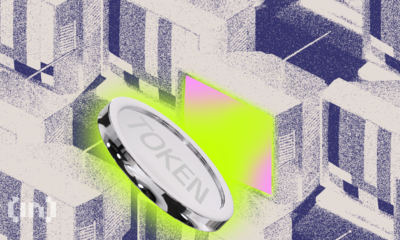Market
Hyperliquid-Style Airdrop Strategies: 6 Projects To Watch


Airdrop farmers remain nostalgic following the successful launch of Hyperliquid, which allocated 31% of its HYPE tokens to the community on day one. Its powering token, HYPE, surged 125% post-launch, with a $1.5 billion market cap, and does not show signs of stopping.
With its valuation up over 514% since launch and a current market cap exceeding $4.2 billion, Hyperliquid has sparked speculation about which projects might replicate its success. Considering tokenomics and community engagement strategies, here’s a look at potential contenders poised to follow Hyperliquid’s trajectory.
Grass
Grass gained attention with its first airdrop on Solana, distributing 10% of its total token supply during its initial phase. Participants earned tokens by contributing computing power and engaging with the network.
For its second phase, Grass plans to allocate 17% of tokens to the community. It encourages active user participation in building a decentralized map of the internet. With over 2 million active users globally, Grass continues to position itself as a leader in decentralized infrastructure projects.
LayerZero
LayerZero is an omnichain protocol that lets blockchains communicate directly with lightweight, trustless message passing. Popular among the top-performing blockchain bridges, LayerZero’s initial allocation of 15% of its ZRO token supply was designated for future incentivized activities.
On July 19, Bryan Pellegrino, CEO of the LayerZero Foundation, disclosed that LayerZero users and developers will receive 23.8% of the token supply. According to an official announcement, unclaimed tokens as of September 20 were reallocated.
Analysts recommend engaging with LayerZero’s bridge services regularly and participating in its Discord roles program, which reserves an additional 5 million tokens for the community. Participants can improve their eligibility for the LayerZero airdrop by using its powered bridges, DEXes, and lending protocols while staying updated through the protocol’s social media.
Wormhole
Wormhole, a multi-chain interoperability protocol, offered an early airdrop strategy that proved lucrative for active users. Although the project reserves only 6% of its W token supply for community rewards, its focus on rewarding high-value transactions suggests it has room to grow with increased adoption.
According to the Wormhole tokenomics document, the project unlocked 11%, or 1,100,000,000 W, at TGE and the remaining 6% four months after TGE, which is in line with the project’s token release schedule.
The project unlocked the extra 6% reserved for the community and is pending distribution at any time. They have not announced anything, but bridging via Wormhole remains a positive play.
“None of the Guardian’s allocated token supply will be unlocked at the TGE and those W are subject to the Token Release Schedule,” Wormhole added.
Gradient Network
The Gradient Network is built on Solana and aims to scale up cloud computing. To do so, it introduces edge computing through a decentralized network of devices to process data. Users can now download the Gradient browser extension and earn rewards by setting up a node.
Yuan Gao, who previously served as Head of Growth at Helium Foundation, leads the project. Gradient Network has received support from Multicoin Capital, Pantera Capital, and Sequoia Capital.
Still in its nascent stage (Season 0), Gradient Network presents itself as a Solana-adjacent project, targeting users who missed out on Grass. Though no specific token allocation has been announced, Gradient’s early-stage activities position it as a speculative opportunity for proactive participants.
Arkham
Arkham recently shifted from blockchain services to building a perpetual exchange. Its airdrop strategy mimics Hyperliquid’s, rewarding users who trade and refer new participants. With a promising start, its second phase is expected to mirror the impact of its initial distribution, where only 7% airdrop out of the 37% that is meant for the community happened.
Kinto
Billing itself as the first “Security Layer-2,” Kinto has caught the attention of Binance Research. Its TGE is tied to achieving $100 million in total value locked (TVL). While its timeline is later than others, its structured approach to deposit-based rewards makes it a noteworthy candidate.
These projects vary in token distribution and community engagement strategies. Nevertheless, their efforts to decentralize ownership and incentivize active participation align with Hyperliquid’s success model. Users looking to capitalize on these opportunities will need to monitor their updates, tokenomics, and engagement requirements closely.
Disclaimer
In adherence to the Trust Project guidelines, BeInCrypto is committed to unbiased, transparent reporting. This news article aims to provide accurate, timely information. However, readers are advised to verify facts independently and consult with a professional before making any decisions based on this content. Please note that our Terms and Conditions, Privacy Policy, and Disclaimers have been updated.












